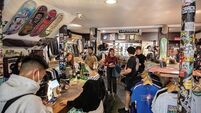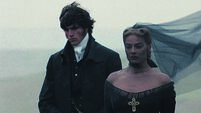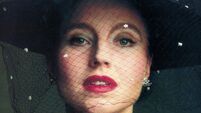Cork Midsummer Festival offers a variety of theatrical performances
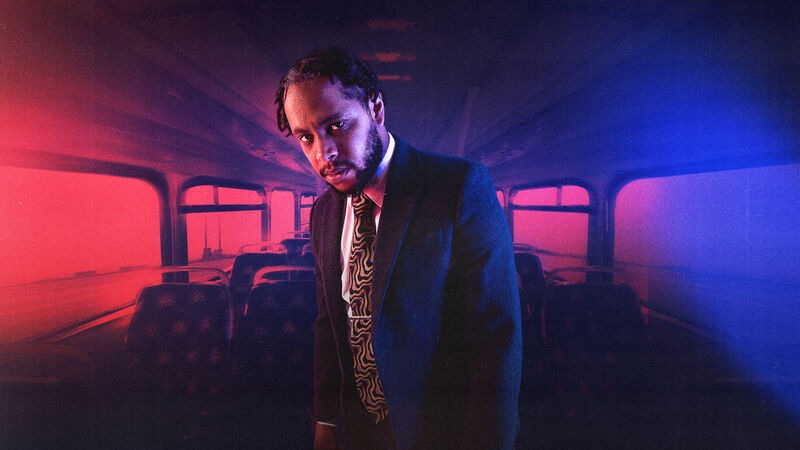
The Black Wolfe Tone featuring Kwaku Fortune.
The backbone of the Cork Midsummer Festival’s programme has always been theatre and performance, and this year’s edition continues that tradition with around 20 different pieces to pick from. One of the Irish plays has the eye catching title of ‘The Black Wolfe Tone’, a fast-paced and urgent new play covering themes such as identity, masculinity and intergenerational trauma.
Its writer and performer Kwaku Fortune considers the title as key to the piece. “The origins of the title is like the chicken and the egg. Originally, as I was working on the script, it had a working name like ‘Dark Shadow’ or ‘Hidden Edges’, or some weird dark name. But the title emerged from finishing the last scene when the play’s character is trying to define his own personality.”
The need for Kwaku to discover the character’s core identity was crucial to making sure it didn’t become a one-man show about himself, he explained.
“I tried to write something that's not just straight biography, it’s a piece of theatre that's entertaining. The guy's name is Kevin, it's not me… but it does contain my stories, with bits that are dramatised and heightened. It's very clear that he also has an Irish dad and an African mother; it's my dad, but it's also the ‘Irish dad’. The dad character is also heightened; we add elements to create more conflict, making it a play. I wanted to talk not so much about the issue of mental health and what's right or wrong, or to judge anyone, or any of that shit. It's more about what I personally went through.”
Kwaku also wanted to delve into the decision some people make about whether ‘to medicate or not to medicate’, he continued, “I look at how mania is such a positive thing in one way, and dangerous in another, it's like a drug in itself. Many people are reluctant to be medicated because they're drawn to that energy; it cannot be replicated, and it can make you feel like a God! I want to draw light on that in an honest way, and look at why some people kind of stay in these places, they feel that when they take the medication, they feel like their soul has been drained. They feel flat. They feel lifeless.”
A drama about such issues might seem to be very serious, but Kwaku is sure to point that the play has a balance. “It might seem quite heavy with a lot of issues, but actually, it's quite a light and fun play for the most part. Once you mention mental health or anything like that, some people still draw back, which is fine with me, but the play just gets on with it. It's trying to balance the light in the dark, the audiences so far have got that struggle, they’ve laughed when they were supposed to laugh anyway! In some ways, though, the reaction is out of my control. I'm not a therapist. I'm not there to - and I can't - fix anyone. The story is what's important, and there's been a lot of audience engagement so far.”
Kwaku has felt an affinity with Wolfe Tone for a long time. “I studied him for the Junior Cert… well, to be honest, my mate did a project on him, so I was like ‘I'll just cog off him!’ But as I actually got into it, I just found him fascinating. Obviously Wolfe Tone, being Protestant, was part of the ruling class in the late 1800s so he was definitely on the inside of high society, but then he was fighting for the Catholics and the people who were being squashed and the second-class citizens. So it was a weird dividing line, and it asked questions. What is Irish? What is British? Since his family were Protestant settlers, does that make him British. I found that really interesting, him being an outsider, essentially, in terms of the concept of being Irish, trying to liberate Ireland. I’d always been told Ireland is a very welcoming place, but at times I’ve been told that I wasn't Irish, or ‘go back to your own country' or ‘you're not from here, you're from there’. Like my identity would be kind of put upon me, without any conversation or context.”
Performing ‘The Black Wolfe Tone’ as part of Cork Midsummer gives Kwaku an additional impetus. “With a festival, there's a certain energy. You're in fast and you're out fast, there's not a lot of time, so you're kind of hitting the ground running, it really drives you. I was down in the 2018 Cork Midsummer Festival with ‘Asking For It’.
"There’s a good sense of camaraderie with the other performers, catching each other's shows, and there's always a good buzz around the city.”
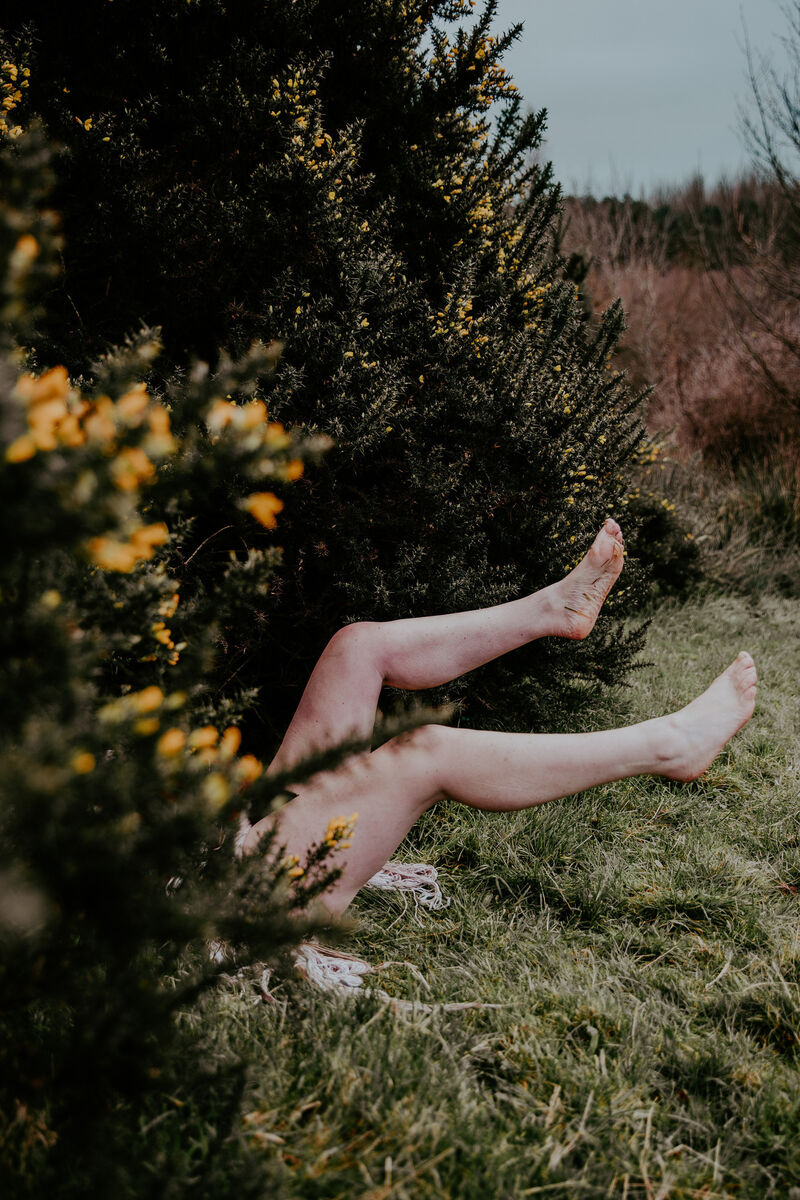
Another performer who knows the atmosphere of the Cork Midsummer Festival is Amanda Coogan, the performer and driving force of ‘Caught In The Furze’. “This is my third year in a row at the festival, in 2023 I was in The Crawford Gallery and made a beautiful group piece with Cork Deaf Community Choir, and we made a sign language version of Beethoven's ‘Ode to Joy.’ Then last year, I made a much bigger piece called ‘Possession’, it was an opera with Linda Buckley, and we showed that in The Granary Theatre, it had a band, The Cork Deaf Community Choir and the Dublin Theatre Of The Deaf. So these were gorgeous group pieces. This year though, the Midsummer Festival is going to the core of my practice, which is durational endurance solo live performance. I think the ambition of the Midsummer Festival is really interesting, Lorraine Maye (director of Cork Midsummer Festival) has a vision for this year which is very much about duration and liveness, between Eileen Walsh and the 24 Hour piece ‘The Second Woman’; ‘Helios’, which is on midsummer's day, will go from dawn until dusk in Saint Fin Barre's Cathedral; and then I'm making a 35-hour live exhibition, a seven-day performance within an immersive installation of furze (gorse) bushes.”
While ‘Caught In The Furze’ is running, it will be the sole focus of Amanda’s day. “The glorious thing of performing live with this is that you step into that artwork. I'm making it for seven days with my own body, with my own creativity, with the audiences that come in and out, with all these furze bushes that I have in it, and that's all I do, nothing else. I’ll eat, I’ll sleep, I’ll make live performances. I'm really interested in this because the piece of work will constantly be in flux. It'll be different on Saturday the 14th at 12 o'clock when I start, and it'll be different on Sunday, and it will be radically different on Saturday the 22nd when I finish. I very much engage with my audience as they come in; there's no stage. Everyone is there together, we're on the same floor space. I greet people as they come in when I can if I'm not in the middle of a mad action, I call a little hello or connect with an eye gaze. I'm very much aware of the audience and very much gathering them into the energy and the spirit of it.”
Amanda is adamant about crediting the other people working on the project. “It is supported by the Glucksman Gallery, it's their ‘off-site’ for the festival, working with the liveness of the festival. They are part of UCC, so we've linked in with the creative writing course in UCC. One student every day will come in and write social media posts and push them out on Instagram, almost like reportage or witness. It will be creative output, because a lot of them are poets and writers themselves, so we'll see what they will do.
"I'm also working with the brilliant filmmaker Colm Walsh, he is going to be livestreaming an hour every day of this work. It will really document the evolution of the piece, I suppose. I just need to bring it now!"
Amanda continued to praise the Cork Midsummer’s 2025 programme. “There's so much glorious work this year. Even if you are only around for two or three days, you can fit in all of these different rich pieces of work. Come see me, then hop over to Eileen and then to The Everyman for Caryl Churchill’s ‘Escaped Alone’, which sounds so exciting. There are so many rich pieces of work, it feeds you for the rest of the year - in the depths of winter, you're going to remember that experience. Everyone brings their A-game to a festival. There's a whole coming together of people who are interested in great people making work, but also audiences who are interested in seeing the work.”
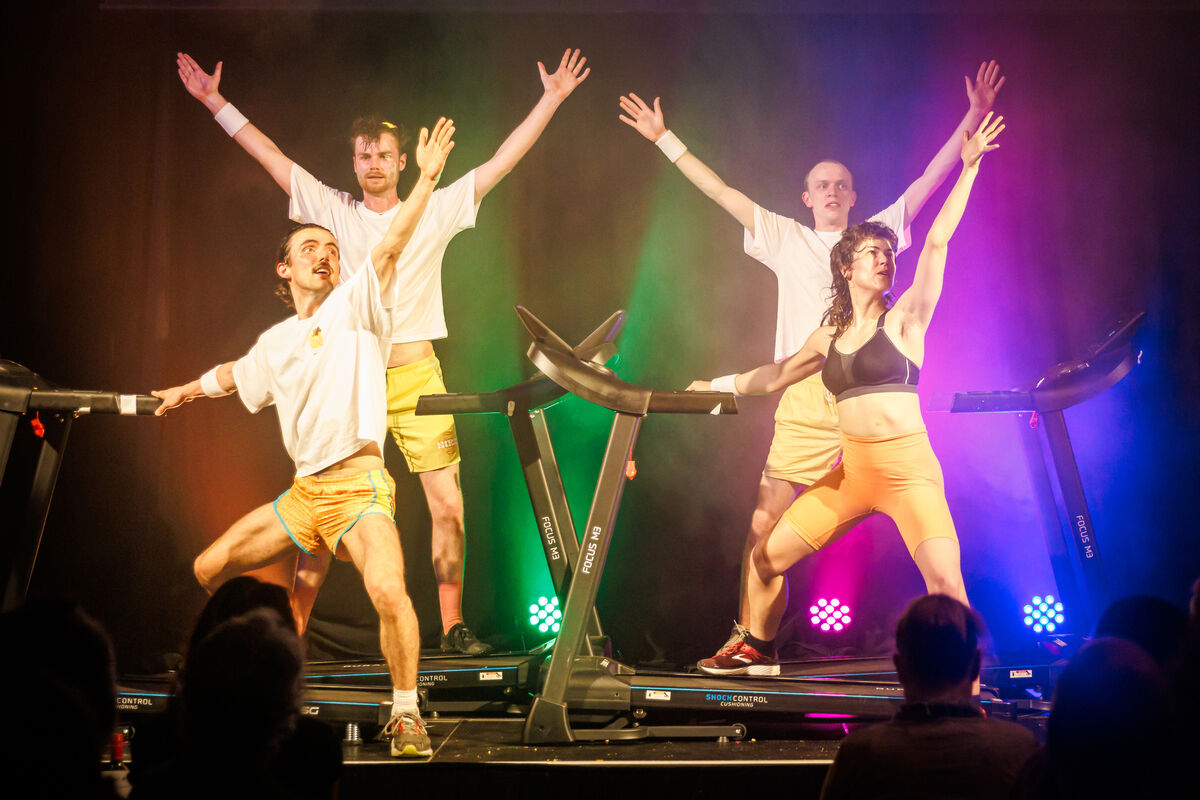
The Australian experimental theatre collective Pony Cam are coming to the Cork Midsummer Festival with their show ‘Burnout Paradise’. While the company is only in its fifth year, they have already built up quite a reputation for playing with the form of established theatre conventions, and finding humour and communal connection where possible.
Dominic Weintraub, one of the five members of Pony Cam, explained where the idea for this production came from. “Burnout Paradise came from a very particular point in time for us where we were making two shows simultaneously, and then also trying to present a third show digitally from afar at the same time. Then Melbourne Fringe Festival reached out to us saying, ‘you guys should absolutely pitch something for our festival... applications close tonight’. We said, ‘Great'.
"Okay, let's carve out 45 minutes to sit down and come up with a list of ideas of what we might want to do. It was a very long list. At some point, Claire Bird, one of the other members of Pony Cam, said, “I'm pretty sick of doing shows that destroy my body and destroy my ability to have any kind of good habits in my life. What if we do a show where we get fit during the show?” So we started trying to make a show on treadmills. The treadmill seemed like the best piece of fitness equipment - which I'm not sure is still true for us! - but we started running on treadmills and see what was fun on that. The theme, the world, the games, the play, the silliness and the collective idea all formed out of that, the starting point just being ‘we're really exhausted, theatre kind of destroys our lives.’ How can we try to show ourselves a bit more self-care?”
Hugo Williams, who is also in the show, continued on the theme of Pony Cam trying to find a creative way for them to work as a collective. “We knew it can be inefficient and messy and tiring, and often we spend a lot of times navigating each other's values, boundaries and needs. This work is not artistic work in the way that I would have originally imagined what being an artist is, we spend probably 80% of our time dealing with things through discussion and consensus, like a marketing department might. But what we've realised is that by finding a form that contains those ideas on stage, you get to see all the messiness and incompleteness that we are trying to interrogate.
"Audiences are really attracted to that, not because it speaks to a political thing or a philosophy or an ideology, but because it contains multitudes of things that are not clean, are not refined and have the possibility to break down at any moment. This is the metaphor that people relate to their own lives. If there was a director leading this process, it'd just be five people attempting to enact the vision of one person, but when five people are trying to enact their personal vision of one thing simultaneously, you get something that has more in it for audiences and allows lots of different people to connect their lives to the individuals on stage.”
Pony Cam have found an unexpected element of presenting this as a collective, as Hugo continued. “What we often find is people pick their own personal favourite performer. They feel like they connect to William or Claire or whoever in moments, and just follow their track as they go between treadmills because of the way that they speak, or the way that they are trying to go about it, and that's sometimes quite nice as well. In a lot of our work, although we are working as five people, it's a combination of five solos happening simultaneously on stage sometimes.”
Dominic also commented on what binds the quintet together. “Pony Cam have made an immense number of shows now. In the last five years, we studied together and graduated straight into covid and then spent so much time online, on Zoom calls, trying to discuss what our practice is, even though we didn't yet have a practice. Now we make as many shows as we can, but at the same time, there's this core value in the group about community. I guess working in the arts, and working in all of these systems, is so punishing, the world is increasingly individualistic, and that's a bit scary. There's something really satisfying and nourishing about - although we fight a lot about - having a family unit, having a support structure around each of us that is this collective.”
The idea of this five person collective existing within a larger peer group, such as all the performers at Cork Midsummer Festival, is something that Dominic gets invigorated by. “‘Burnout Paradise’ is a beautiful piece for a festival because it gives audiences who are looking for odd or more adventurous experiences the chance to come and do something kind of out of the box. It also invites artists to come and engage, festivals are so much about bringing artists together to exchange and share where they're at, both through their own work, through their own practice, and also through conversations. For instance I remember doing this in the fourth week of Edinburgh Fringe Festival, and just having a theatre full of of artists who are absolutely exhausted from the slog of doing this festival and this show feels like revolution art in that context, then in other contexts, it feels like fun and community oriented and and a great way to bring a group of people together.”
Hugo furthered the point of ‘Burnout Paradise’ being communal. “For the 70 minutes the show is going on, the audience really becomes its own community. When it's a bunch of artists, it can become quite emotional and almost like they're somehow complicit in what's happening, which can have quite an upsetting reaction to them. But it can also be people that are one layer or more removed from the festival, and just really appreciate the art, it can become more of a caregiving kind of community. They're like ‘how can we help? How can we come together and help you through these tasks that you're doing on stage, and how can we get you to a win at the end of this show?’ That requires them to negotiate as an audience - regardless of us - to figure out how who needs to go up, how they need to go up, sort of modulating each other, providing feedback to each other about how they can best support us. And they do that all on their own every time and different places have different kind of communities. In New York, it was a very different community, compared to say the Edinburgh crowd; the New Yorkers really wanted a win. They had just gone through the American election results, obviously a lot of people took it in a really upsetting way, so they were really fighting for something.
Whereas in other audiences, it's simpler, it's community with a lowercase c. It's more than just the local though, it’s also the big scale of the world, how can we do a little bit better to support each other?”
Performance times and ticket information for the shows mentioned in this article can be found at
https://www.corkmidsummer.com/whats-on/the-black-wolfe-tone
